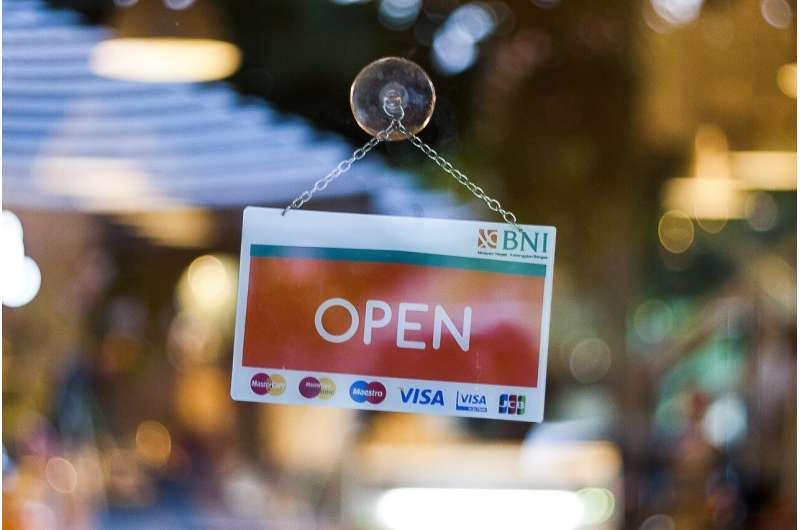Science
Retail Workers Seek Solutions to Combat Customer Abuse Ahead of Holidays

As the holiday season approaches, retail workers in Australia are preparing for an influx of customers but are also facing an increase in verbal abuse. A recent survey conducted by the Shop, Distributive and Allied Employees’ Association (SDA) revealed that a staggering 87% of frontline workers reported experiencing verbal abuse from customers in 2023. This figure has remained consistent since 2016, but the frequency of such incidents has escalated. In 2023, 76% of those who faced abuse did so on a daily, weekly, or monthly basis, compared to 54% in 2021.
In light of these troubling statistics, retail groups have launched a national campaign called “Be Kind in Retail,” urging shoppers to show compassion and patience during the busy Christmas period. Retailers have also invested significantly in security measures, including body-worn cameras, to protect their staff. Yet, a low-cost solution tested since 2020 may provide a more effective approach to mitigating customer hostility.
Introducing the “No One Deserves a Serve” Campaign
The SDA’s “No One Deserves a Serve” campaign, initiated in late 2017, aims to address and reduce abuse directed at retail workers. As part of this initiative, the union distributed 500,000 adhesive “under badges” to workers at various retail locations, including Woolworths, Target, Big W, and KFC. These under badges, which are small identifiers placed below existing name tags, convey personal messages such as “I’m a mother” or “I’m a son.”
The idea behind these badges is to humanize retail workers, fostering a connection with customers. Gary Mortimer, the lead author of a recent study, was inspired to investigate their impact after observing his daughter wearing one of these badges during her job at a supermarket. Despite their use, limited research has been conducted on the effectiveness of low-cost solutions like these in reducing customer abuse.
Research Findings on Customer Interaction
In a study published recently, researchers interviewed 17 supermarket employees who participated in the “No One Deserves a Serve” campaign. While some reported feeling awkward wearing messages like “I’m a son,” many noted a positive impact. They experienced reduced instances of verbal abuse and found that the under badges often opened up opportunities for conversation. One supermarket worker recounted, “I recall this old fellow coming in and carrying on […] and then he just calms down when he sees that I’m a mother. He starts talking about his kids when they were younger.”
The researchers conducted two experiments involving 940 customers to further understand the effectiveness of the under badges. In the first experiment, participants were presented with scenarios involving poor service, which typically elicited anger. Respondents then viewed AI-generated images of fictional retail workers, some merely displaying their name badges, while others wore under badges revealing personal information like “I’m a daughter.” The results indicated a statistically significant reduction in customers’ intentions to verbally abuse the workers when the under badge was present.
A second experiment replicated these findings using different personal disclosures, such as “I’m a local.” Again, any form of self-disclosure contributed to a decrease in customer abuse, reinforcing the idea that humanizing employees can foster empathy.
The research aligns with two key theories in social psychology: social penetration theory and social exchange theory. Social penetration theory suggests that relationships deepen as individuals share more personal information, while social exchange theory posits that when the perceived benefits of an interaction outweigh the costs, relationships are likely to flourish. By revealing personal details, retail workers can encourage customers to view them as more than just employees, but as individuals deserving respect.
As the holiday shopping season approaches, many retail workers have stopped wearing their under badges, with some citing reasons such as wear and tear or loss. Despite this, the SDA continues to distribute the badges, which are cost-effective—ranging from 17 cents each for large orders to 43 cents for smaller batches.
In conclusion, as retailers and unions strive to improve working conditions, the implementation of simple, low-cost solutions like the under badges may significantly enhance the safety and dignity of workers during the hectic holiday period. As the saying goes, a small reminder that retail workers are individuals with their own stories can go a long way in fostering a more respectful shopping environment.
-

 Politics2 weeks ago
Politics2 weeks agoHamas Chief Stresses Disarmament Tied to Occupation’s End
-

 Science2 weeks ago
Science2 weeks agoOhio State Study Uncovers Brain Connectivity and Function Links
-

 Entertainment2 weeks ago
Entertainment2 weeks agoMegan Thee Stallion Exposes Alleged Online Attack by Bots
-

 Science3 weeks ago
Science3 weeks agoResearchers Challenge 200-Year-Old Physics Principle with Atomic Engines
-

 Top Stories2 weeks ago
Top Stories2 weeks agoFederal Agents Detain Driver in Addison; Protests Erupt Immediately
-

 Top Stories2 weeks ago
Top Stories2 weeks agoOrioles Hire Craig Albernaz as New Manager Amid Rebuild
-

 Entertainment2 weeks ago
Entertainment2 weeks agoPaloma Elsesser Shines at LA Event with Iconic Slicked-Back Bun
-

 Business2 weeks ago
Business2 weeks agoHome Depot Slashes Prices on Halloween Favorites Up to 75%
-

 Entertainment2 weeks ago
Entertainment2 weeks agoSyracuse Stage Delivers Lively Adaptation of ‘The 39 Steps’
-

 World3 weeks ago
World3 weeks agoGlobal Military Spending: Air Forces Ranked by Budget and Capability
-

 Top Stories2 weeks ago
Top Stories2 weeks agoWill Smith Powers Dodgers to World Series Tie with Key Homer
-

 Politics3 weeks ago
Politics3 weeks agoNHP Foundation Secures Land for 158 Affordable Apartments in Denver









